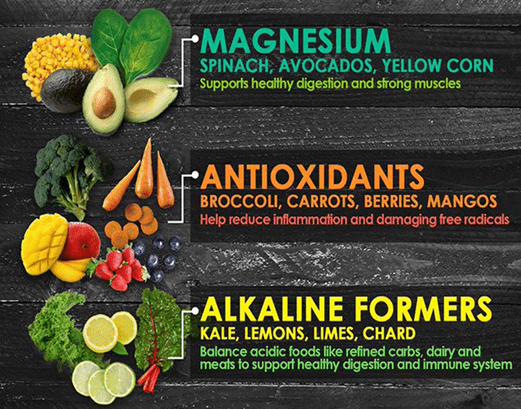
Unlock the Benefits of a Whole Food Diet!
Discover compelling reasons to switch to whole foods, including improved health, increased energy, and enhanced well-being. Learn how whole foods can boost your nutrition and support a healthier lifestyle with our in-depth guide. Try a whole food diet for your health today!
HEALTHWELLNESS


Introduction: Discover the Benefits of a Whole Food Diet
A whole food diet focuses on eating foods in their natural, unprocessed forms. This way of eating can be incredibly beneficial for your health—or harmful if not taken seriously. Our daily food choices have a big impact on our well-being, so it's important to understand what whole foods are and how they affect us.
Whole foods are minimally processed and free from additives, preservatives, and artificial ingredients. Think fruits, vegetables, whole grains, nuts, seeds, and lean proteins. These nutrient-packed foods offer a treasure trove of vitamins, minerals, and antioxidants essential for good health. By choosing whole foods over heavily processed options, you can lower your risk of chronic illnesses like obesity, diabetes, heart disease, and even some cancers.
Unfortunately, many people overlook the benefits of a whole food diet, partly because of a lack of nutrition education. Many of us grow up without knowing how our food choices impact our health. This gap in knowledge can lead to poor eating habits that stick with us into adulthood, causing various health issues.
That’s why it’s so important to learn about the benefits of whole foods and teach this knowledge to others. By understanding how to make healthier food choices and recognizing the downsides of processed foods, we can take control of our health. Embracing a whole food diet lets us use the natural power of food to support our bodies and create a healthier future.
Why Whole Foods Are Great for You: Fiber and Phytonutrients
Whole foods are packed with fiber and phytonutrients, which are crucial for overall health. Fiber, found in whole grains, fruits, vegetables, and legumes, keeps your digestion running smoothly. Soluble fiber helps manage blood sugar levels, while insoluble fiber adds bulk to your stool, which helps with regular bowel movements and prevents constipation.
High-fiber foods also play a big role in managing weight. They fill you up, which means you're less likely to overeat or snack between meals. This not only helps maintain a healthy weight but also reduces your risk of chronic diseases like Type 2 diabetes and heart disease.
Phytonutrients are another important component of whole foods. These natural compounds, such as flavonoids, carotenoids, and polyphenols, have powerful antioxidant properties. They help reduce inflammation and oxidative stress in the body, lowering the risk of chronic diseases like cancer, heart disease, and neurodegenerative disorders.
Eating a variety of whole foods ensures you get a broad range of these beneficial nutrients. For example, berries like blueberries and strawberries are packed with flavonoids, while leafy greens like spinach and kale are high in carotenoids. Whole grains like oats and quinoa provide both fiber and phytonutrients, offering extra health benefits.
Including legumes such as beans and lentils in your diet provides additional fiber and phytonutrients, which boost immune function and overall health. By focusing on whole foods, you’re giving your body the essentials it needs to stay healthy and fight off diseases.
Whole Foods for Lasting Energy
Whole foods are fantastic for maintaining steady energy throughout the day. Unlike processed foods, which can cause energy spikes and crashes, whole foods provide a consistent supply of nutrients that support your body’s energy needs. This is especially helpful if you’re working towards personal or professional goals, as steady energy helps you stay focused and productive.
Eating whole foods like fruits, vegetables, whole grains, nuts, and seeds gives you a balanced mix of macronutrients. Complex carbohydrates in whole grains and legumes release glucose slowly into your bloodstream, offering a steady energy supply and avoiding the quick highs and lows of refined sugars and processed foods. This steady release of energy is essential for endurance, whether you’re working out or tackling mental tasks.
Whole foods also contain dietary fiber, which supports digestion and helps regulate blood sugar levels. Fiber slows down sugar absorption, providing a steady energy release and preventing sudden drops that can lead to fatigue. Healthy fats from avocados, nuts, and seeds are also important, as they provide a concentrated energy source and help absorb fat-soluble vitamins.
In contrast, processed foods often have added sugars and unhealthy fats, leading to quick energy spikes followed by crashes. These fluctuations can make it hard to stay focused and active. By choosing whole foods, you’re giving your body the nutrients it needs for sustained energy, which supports overall well-being and helps you reach your goals.
The Magic of Nutrient Synergy
Nutrient synergy is a cool concept that shows why whole foods are so beneficial. It’s all about how different nutrients in whole foods work together to boost their health benefits. Unlike isolated nutrients in supplements, the compounds in whole foods interact in a way that helps your body absorb and use them more effectively.
Whole foods, like fruits, vegetables, whole grains, and lean proteins, are packed with a mix of nutrients including fiber, antioxidants, phytonutrients, and essential fatty acids. For example, the vitamin C in an orange works best when you eat the whole fruit, along with its natural sugars, fibers, and phytonutrients that help with absorption and overall benefits.
On the flip side, synthetic supplements might not offer the same synergy. They often provide only one form of a nutrient, whereas natural sources include multiple forms that work together. Plus, supplements can sometimes lead to imbalances or excessive intake of certain nutrients, which can be harmful.
Eating a variety of whole foods lets nutrients work together naturally, offering better health benefits. This approach ensures you get a balanced intake of essential nutrients and leverages nature’s design for better well-being compared to synthetic alternatives.
Balancing Blood Sugar Levels with Whole Foods
A whole food diet is key to managing blood sugar levels effectively. This approach is especially helpful for reducing the risk of diabetes and other metabolic disorders, thanks to the natural properties of whole foods that help keep glucose levels stable.
Complex carbohydrates in whole grains, legumes, and vegetables digest slowly, providing a steady release of glucose into your bloodstream. This helps avoid the sharp spikes and crashes that come from refined sugars and simple carbs. By keeping blood sugar levels steady, complex carbs reduce the need for insulin spikes, lowering the risk of insulin resistance.
High-fiber foods like fruits, vegetables, nuts, and seeds also support blood sugar regulation. Soluble fiber slows down glucose absorption during digestion, helping to manage blood sugar levels after meals. Plus, fiber increases satiety, which helps prevent overeating and maintains a healthy weight—key factors in managing and preventing conditions like Type 2 diabetes.
Whole foods are also rich in essential nutrients that support metabolic health. Nutrients like magnesium, chromium, and omega-3 fatty acids, commonly found in whole foods, can improve insulin sensitivity and reduce inflammation, contributing to better blood sugar control. Eating these nutrient-dense foods helps create a balanced internal environment, which is crucial for overall health and metabolic function.
The Long-Term Perks of a Whole Food Diet: Longevity, Savings, and Mental Health
Switching to a whole food diet offers a bunch of long-term benefits that boost your overall well-being. One major advantage is increased longevity. Studies show that people who eat lots of whole foods—like fruits, vegetables, whole grains, nuts, and seeds—tend to live longer, healthier lives. Diets rich in these foods can lower the risk of chronic illnesses such as heart disease, diabetes, and certain cancers, leading to a longer lifespan.
Many people think eating healthy is expensive, but it doesn’t have to be. With a few smart strategies, a whole food diet can be budget-friendly. Buying seasonal produce, shopping in bulk, and planning meals ahead can keep costs down. Choosing whole grains like brown rice, oats, and lentils not only saves money but also offers great nutritional value.
Plus, a whole food diet can positively affect your mental health. Research shows that what you eat can impact your mood and cognitive function. Whole foods, rich in nutrients like omega-3 fatty acids and antioxidants, support brain health and help stabilize mood. Studies also suggest that diets high in whole foods and low in processed foods are linked to lower levels of depression and anxiety.
Incorporating whole foods into your diet can transform your health, making you feel better physically and mentally while saving money.
Even if you still include processed foods in your diet, swapping some for whole food options can be life-changing, physically and mentally.
Let’s stop poisoning ourselves and start healing ourselves.


Copyright © 2025 Djedi Living. All rights reserved.
Disclaimer
This site is not intended to provide and does not constitute medical, legal, or other professional advice. The content on DjediLiving.com is designed to support, not replace, medical or psychiatric treatment. Please seek professional care if you believe you may have a condition.
DjediLiving.com may earn affiliate income from qualifying purchases.
Before using the site, please read our






